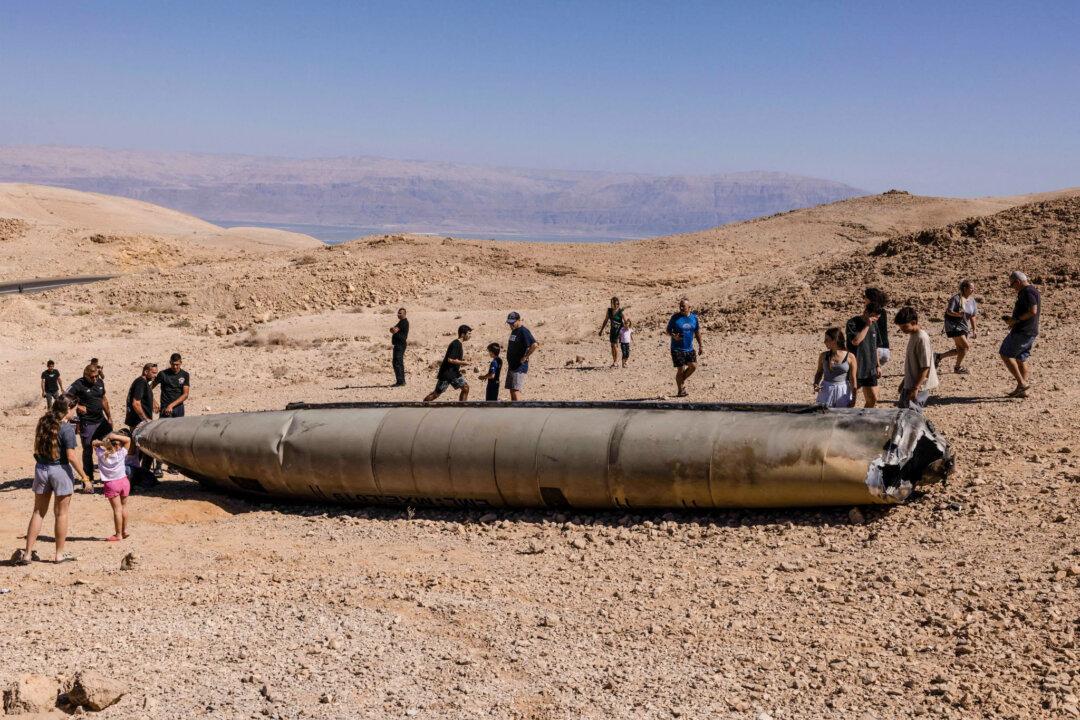Iran ratcheted up tensions throughout the Middle East on Oct. 1 as its Islamic Revolutionary Guard Corps (IRGC) fired about 180 ballistic missiles at targets across Israel. Now military planners, diplomats, and foreign policy analysts are trying to gauge how Israel can respond and how much further Iran is prepared to escalate.
Israel reported intercepting many of the Iranian ballistic missiles, with help from the United States, the UK, France, and Jordan. Still, some of the missiles struck locations in Israel.





